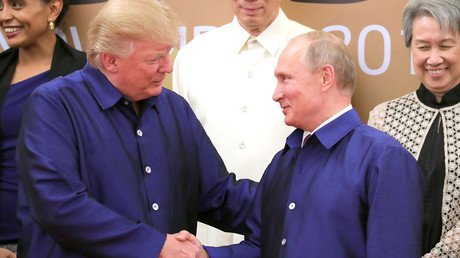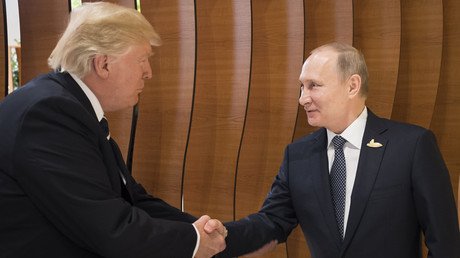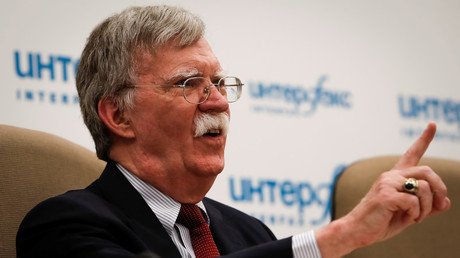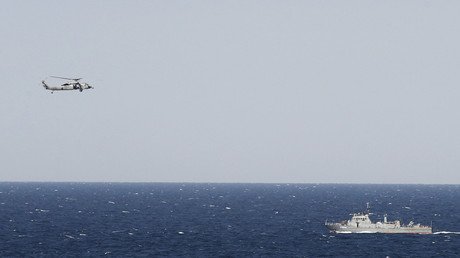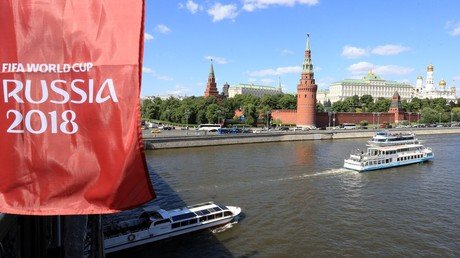German officials join UK and US establishment worried how Trump-Putin summit will affect NATO
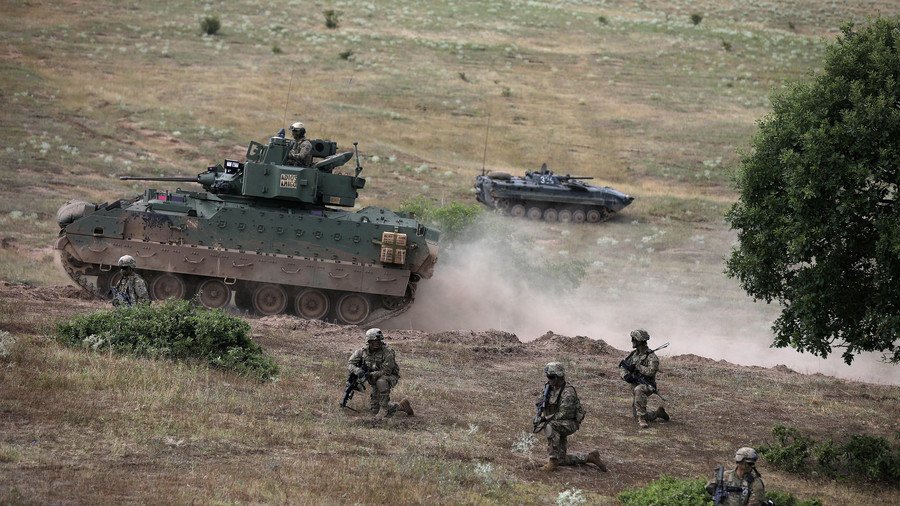
German politicians are nervous over the meeting between Donald Trump and Vladimir Putin, fearing the US president could take actions that are not in line with NATO, echoing concerns across the channel and the Atlantic.
Ahead of the meeting on July 16 in Helsinki, several German officials expressed their worry in interviews with newspapers throughout the country. The transatlantic coordinator for Chancellor Angela Merkel's ruling coalition, Peter Beyer, told the Funke Mediengruppe newspapers that "there are great concerns in the alliance about what agreements Trump and Putin could reach" during the summit, and he lamented that NATO member states had not been included in the planning.
He said that Trump would let Putin "put one over on him" during the meeting in Helsinki, using the US president's recent meeting with North Korean leader Kim Jong-un as justification for his rather frank comment.
"Kim has only made promises thus far. We don't know if he has stopped enriching uranium. Only Trump has billed the summit as such as a success," said Beyer, a member of Merkel's Christian Democrats Union (CDU).
Beyer isn't alone when it comes to concerns surrounding the meeting and the apparent belief that the two leaders can't simply meet in the same way that other world leaders meet every day - and the same way German Chancellor Angela Merkel has met with both Trump and Putin on numerous occasions.
Christian Lindner, the head of Germany's Free Democrats, told Deutschlandfunk in an interview that he did not trust Trump, and that his actions in the areas of trade and security were not in Washington's long-term interest.
"He is too volatile...within 24 hours, Mr. Trump can change his position by 180 degrees," Christian Lindner, the head of the Free Democrats, told Deutschlandfunk. He called for Europe, as the world's largest single economic zone, to take a united stance and act as a counterweight to Trump and Putin. The EU is currently in loggerheads with the US over tariffs on aluminum, steel and other goods.
And then there's Wolfgang Ischinger, the head of the Munich Security Conference and a former German envoy to Washington, who expressed concern that Trump might refuse to sign a communique at next week's NATO summit in Brussels. "It cannot be ruled out," he told Die Welt in a clear reference to Trump refusing to sign the document from G7 meeting in June.
'Getting along with other countries is a good thing, not a bad thing' https://t.co/n3MrTkI5Tb
— RT (@RT_com) July 6, 2018
Amid all this scaremongering, Merkel herself said in a Saturday video address that Germany "would like to have reasonable relations with Russia. That is why we will always have discussions in the NATO-Russia Council." She expressed her support for NATO in the next breath, saying it is needed in the 21st century "as a guarantor of our transatlantic alliance," and stating that it "must show determination to defend itself."
The comments come as Trump continues to pressure NATO states to pay their fair share towards the alliance, as Washington currently accounts for more than two-thirds of all defense spending by NATO members. It is one of only six countries to meet the two percent GDP quota.
A page out of Britain's book
The comments by German officials come less than two weeks after The Times reported that the UK also fears that Trump will undermine NATO by striking a "peace deal" with Putin during the meeting. It cited cabinet ministers who are worried that the Russian president could persuade Trump to downgrade US military commitments in Europe, thus compromising NATO countries' defense against so-called "Russian aggression."
Alexander Bartosh, a military expert and former Russian diplomat, told RT that such concerns would come as no surprise, as the UK "has been one of the most active supporters of a hard line towards Russia." He added that the UK feels "a certain loss of its weight in Europe and tries to turn Russian into a kind of boogeyman, seeing the 'Russian threat' as a unifying factor for nations, looking for closer ties with London."
Bartosh also noted that the meeting between the two leaders will merely include trying to find a "unifying agenda for the US and Russia because the relations of the two countries affect not only their own wellbeing, but international security as a whole...none of the sides will be aiming to undermine the integrity of NATO."
Trouble on the homefront
It's not just Europe that fears what could happen in the meeting between Trump and Putin. Even former CIA director John Brennan told MSNBC last week that Trump "is not sophisticated enough" to deal with Moscow.
"I must tell you the Russians will feign sincerity better than anyone I've ever dealt with in my life. So I would be very careful about being swept in and I think Mr. Trump is not sophisticated enough, unfortunately, to deal with these foreign leaders in a manner that is going to protect US national security interests. I think he's naive in these issues," he said.
In fact, many within the US establishment dread the possibility of the summit succeeding, political analyst and media and government affairs specialist Jim Jatras wrote in an op-ed for RT.
Jatras noted that Trump's desire to actually get along with Russia sounded alarms long before he won the 2016 election. "US reconciliation with Russia would yank the rug out from under the phony justifications for spending hundreds of billions of dollars annually to counter a 'threat' that ceased to exist over a quarter century ago," he wrote.
Journalist Neil Clark voiced a similar point in his own op-ed for RT, stating that a successful summit simply won't do, because Russia "must always be regarded as the enemy - unless of course it does absolutely everything the West demands of it." And while he noted that positive moves between Moscow and Washington would be celebrated by ordinary folks, he stated that defense industry lobbyists wouldn't be nearly as enthused.
Think your friends would be interested? Share this story!
